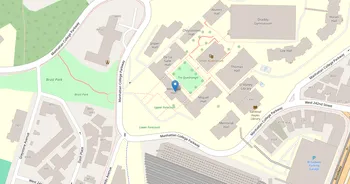Mandl School-The College of Allied Health : Overview, Courses, Scholarships & Rankings
About Mandl School-The College of Allied Health
In the heart of Midtown, Mandl School is known for focused allied health education built around real-world skills. Classes emphasize hands-on learning in simulated clinical settings and practice with professional equipment. The pace feels purposeful and supportive, with steady feedback and attention to professional standards.
The compact, commuter-friendly campus includes labs, computer resources, study lounges, tutoring, advising, and career support. Students step outside to a city full of hospitals, clinics, nonprofits, and research hubs, which translates into practical opportunities and networking. Campus life is low-key but active, with activities that lean toward service, skill-building, and wellness. The culture is welcoming, goal-driven, and tight-knit. And there are milestone ceremonies that mark progress and bring families into the moment.
Key Institutional Details
Contact & Profile
Academic & Institutional
Academic Programs & Fields of Study
Mandl School-The College of Allied Health offers 5 degree programs across 1 major academic fields, graduating approximately 152 students annually. The most popular fields by graduate volume are Health (5 programs, 152 graduates). Explore program details, award levels, and graduate demographics below.
Health (5 programs, 152 graduates)
Healthcare Professions, Medical Sciences and Clinical Practice
| Program Name | Graduates | Gender Distribution | Award Levels | CIP Code |
|---|---|---|---|---|
| Surgical Technology | 54 |
|
Associate's
|
51.0909 |
| Respiratory Therapy Technician | 34 |
|
Associate's
|
51.0812 |
| Medical Assistant | 32 |
|
Certificate (1-2 yrs)
Associate's
|
51.0801 |
| Diagnostic Medical Sonography | 20 |
|
Associate's
|
51.0910 |
| Dental Assisting | 12 |
|
Certificate (1-2 yrs)
|
51.0601 |
Tuition, Fees & Estimated Costs
Overview of tuition rates, housing, and other annual education expenses for undergraduate and graduate students
Financial Aid & Student Support
Summary of scholarships, grants, student loans, and financial aid statistics for undergraduate students
Student Success Metrics
Graduation rates and post-graduation earnings to help assess student outcomes and long-term value of education.
Loan Burden & Repayment Outcomes
Breakdown of loan repayment rates and student debt levels by income and dependency status.
Frequently Asked Questions
Find answers to the most common questions about Mandl School-The College of Allied Health
How much does it cost to attend Mandl School-The College of Allied Health?
The annual tuition at Mandl School-The College of Allied Health is $20,080 for in-state students. When including room and board, books, and other expenses, the total estimated cost is approximately $21,280 for in-state students. Additional costs include room and board $17,206 (off-campus) and books and supplies $1,200.
Data based on IPEDS program completions for 2022-2023 academic year. Tuition and cost estimates are approximate and may not include all fees, personal expenses, or transportation costs.
What academic programs and degree levels does Mandl School-The College of Allied Health offer?
Mandl School-The College of Allied Health offers 5 academic programs across 1 major fields of study, with available degree levels: Certificate (1-2 yrs), Associate's.
Most popular program areas include:
- Healthcare Professions, Medical Sciences and Clinical Practice (5 programs)
Data based on IPEDS program completions for 2023-2024 academic year. Numbers reflect programs where students graduated, not all offered programs.
What financial aid and scholarships are available at Mandl School-The College of Allied Health?
Mandl School-The College of Allied Health provides financial aid to 13% of first-time, full-time students, with average grants of $8,383 and average loans of $9,624.
Average financial aid amounts by type:
- Pell grants: $7,536
- State/Local grants: $2,441
- Federal loans: $9,624
The university supports 54 students with grants and 49 students with loans annually.
Data based on IPEDS for 2022-2023 academic year. Financial aid amounts and percentages may vary by program, enrollment status, and individual circumstances.
What is the average salary for Mandl School-The College of Allied Health graduates?
Mandl School-The College of Allied Health graduates earn a median salary of $37,266 after 6 years and $39,108 after 10 years.
The salary range 10 years after graduation spans from $19,647 (25th percentile) to $54,755 (75th percentile), with top earners reaching $54,900 (90th percentile).
Data based on IPEDS for 2022-2023 academic year. Salary data reflects graduates who received federal financial aid (approximately 60% of all graduates). Actual earnings may vary significantly based on program, location, and individual circumstances.
Related Universities




Found something useful? Help others discover it too! Share with friends, on social media, or save for later - every share helps someone find the information they need.